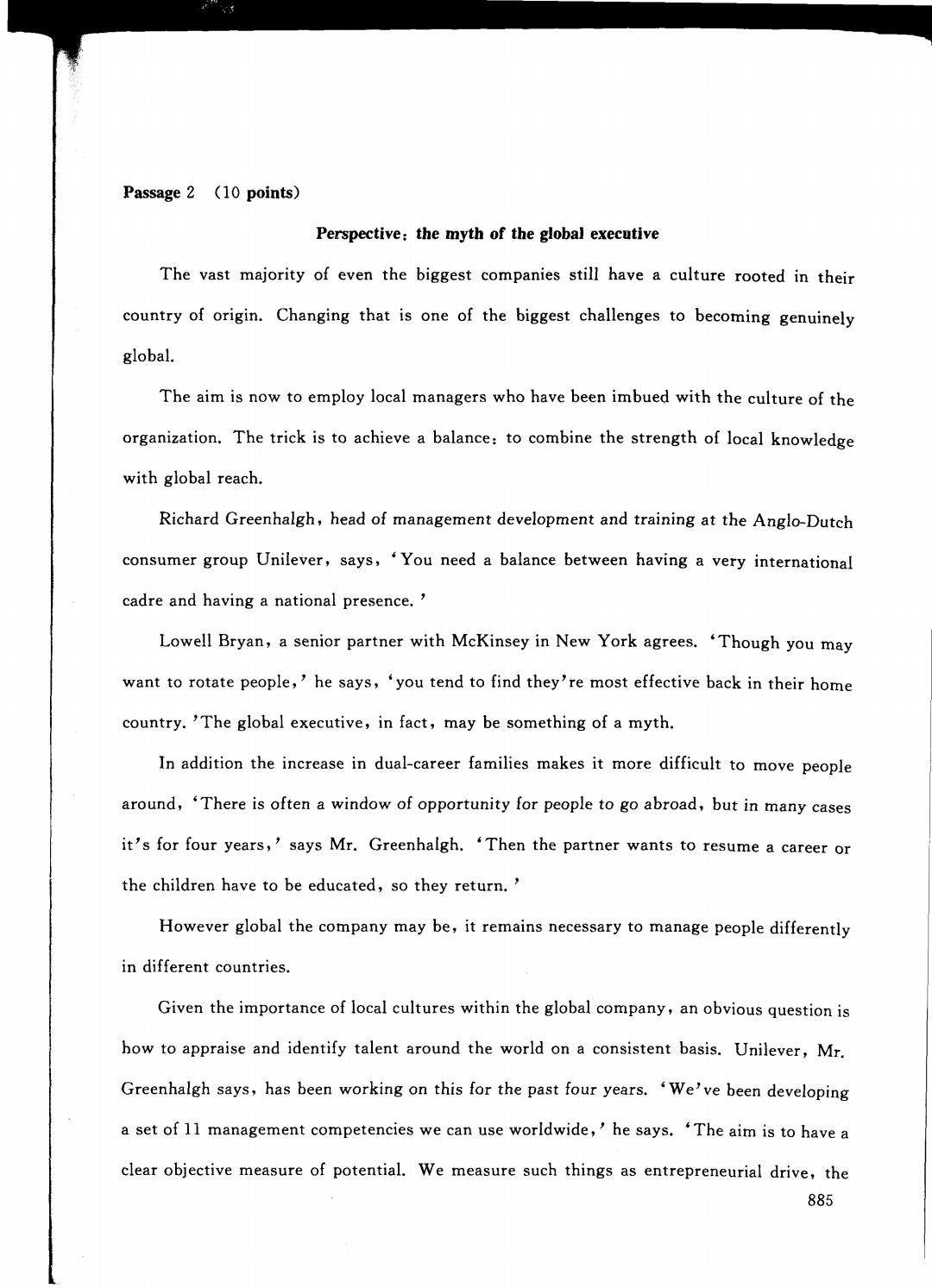正在加载图片...

Passage 2 (10 points) Perspective:the myth of the global executive The vast majority of even the biggest companies still have a culture rooted in their country of origin.Changing that is one of the biggest challenges to becoming genuinely global. The aim is now to employ local managers who have been imbued with the culture of the organization.The trick is to achieve a balance:to combine the strength of local knowledge with global reach. Richard Greenhalgh,head of management development and training at the Anglo-Dutch consumer group Unilever,says,You need a balance between having a very international cadre and having a national presence. Lowell Bryan,a senior partner with McKinsey in New York agrees.'Though you may want to rotate people,he says,'you tend to find they're most effective back in their home country.'The global executive,in fact,may be something of a myth. In addition the increase in dual-career families makes it more difficult to move people around,'There is often a window of opportunity for people to go abroad,but in many cases it's for four years,says Mr.Greenhalgh.'Then the partner wants to resume a career or the children have to be educated,so they return.' However global the company may be,it remains necessary to manage people differently in different countries. Given the importance of local cultures within the global company,an obvious question is how to appraise and identify talent around the world on a consistent basis.Unilever,Mr. Greenhalgh says,has been working on this for the past four years.We've been developing a set of 11 management competencies we can use worldwide,'he says.'The aim is to have a clear objective measure of potential.We measure such things as entrepreneurial drive,the 885Passage 2 (10 points) Persp配tive: the myth of the global executive The vast majority of even the biggest companies still have a culture rooted in their country of origin. Changing that is one of the biggest challenges to becoming genuinely global. The aim is now to employ local managers who have been imbued with the culture of the organization. The trick is to achieve a balance: to combine the strength of local knowledge with global reach. Richard Greenhalgh , head of management development and training at the Anglo-Dutch consumer group U nilever, says, ‘You need a balance between having a very international cadre and having a national presence. ' Lowell Bryan , a senior partner with McKinsey in New York agrees. ‘Though you may want to rotate people , ' he says , ‘you tend to find they're most effective back in their home country. 'The global executive , in fact , may be something of a myth. In addition the increase in dual-career families makes it more difficult to move people around , 'There is often a window of opportunity for people to go abroad , but in many cases it's for four years,' says Mr. Greenhalgh. ‘Then the partner wants to resume a career or the children have to be educated , so they return. ' However global the company may be , it remains necessary to manage people differently in different countries. Given the importance of local cultures within the global company , an obvious question is how to appraise and identify talent around the world on a consistent basis. Unilever, Mr. Greenhalgh says, has been working on this for the past four years. ‘We' ve been developing a set of 11 management competencies we can use worldwide ,' he says. ‘The aim is to have a clear objective measure of potential. We measure such things as entrepreneurial drive , the 885